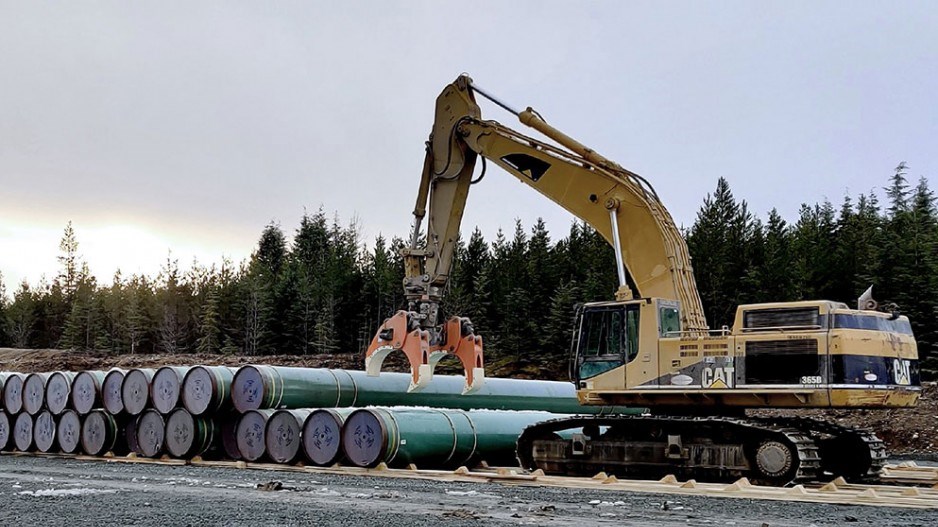Coastal GasLink plans to resume work on its $6.6 billion natural gas pipeline this week, despite an eviction notice being served on the company by a group of Wet’suwet’en hereditary chiefs in an area north of Houston, B.C.
Armed as it is with an injunction and enforcement order, the resumption of work could very likely result in more arrests, although the company has said it has reached out to one of the Wet’suwet’en hereditary chiefs in the hope of avoiding more conflict.
The standoff between the company and protestors may have obscured some other recent developments with the respect to the pipeline: It’s being sold.
On Boxing Day, TC Energy Corp. (TSX,NYSE: TRP) announced it is selling 65% of the Coastal GasLink pipeline project to a private equity firm in the U.S. and an Alberta pension fund manager – the Alberta Investment Management Corporation (AIMCo).
The National Pension Service of Korea is also an indirect investor, according to KKR, which says it is making its investment “primarily through a separately managed infrastructure account” involving the Korean pension fund.
“Coastal GasLink represents our third investment in infrastructure supporting Canada’s natural gas industry,” Brandon Freiman, head of North American Infrastructure at KKR, said in a press release.
"We believe the export of Canadian natural gas to global markets will deliver significant benefits for the Canadian economy and local communities in Western Canada, and enable meaningful progress toward reducing global emissions.”
TC Energy also affirmed its commitment to allow First Nations along the pipeline route to acquire up to 10%. That would bring TC Energy’s share in the Coastal GasLink project down from 35% to 25%.
TC Energy would continue to build and operate the pipeline. There are currently 1,105 workers at accommodation sites along the right-of-way, the company said in a construction update.
The project’s costs recently increased by $400 million. Originally estimated to have a capital cost of $6.2 billion, TC Energy recently increased the cost estimate to build the pipeline to $6.6 billion, citing “increased scope and refinement of construction estimates for rock work and watercourse crossings.”
TC Energy said it expects an after-tax gain of $600 million upon the completion of the sale. The company said a partial sale of the project “was contemplated in the company’s agreements with LNG Canada.” The Coastal GasLink pipeline is a key part of the $40 billion LNG Canada project.
The sale of a significant share of the project to a private equity firm underscores a point that critics of the fossil fuel divestment movement have made: While major banks, pension funds and universities bow to activist pressure to divest from fossil fuel projects, private equity firms will be more than happy to fill the void, as long as there is a profit to be made.
“I think is a normal progression of events,” said Brad Hayes, president of oil and gas consulting firm Petral Robertson.
“There’s more and more private equity around. They always move into sectors where they see the best potential for returns. And the fact that many other large investors are being forced out of the energy sector, because of political or shareholder concerns, means that there’s more opportunities in there. I think it makes all sorts of sense and shouldn’t be a surprise to anybody.”




